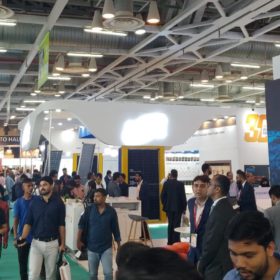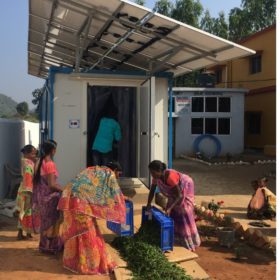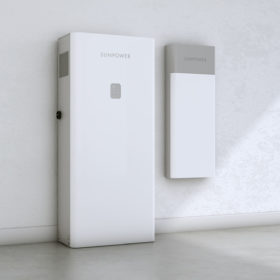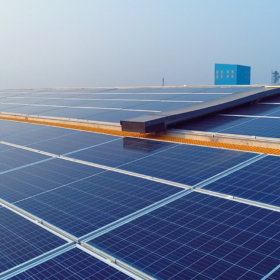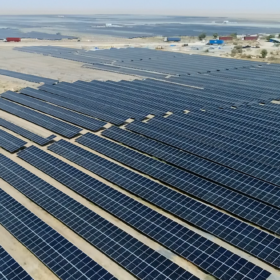Gujarat tenders up to 1.2 GW of solar projects
Gujarat Urja Vikas Nigam Ltd (GUVNL) has issued a tender to procure up to 600 MW of solar power from Khavda solar park-based projects and an additional 600 MW under the Greenshoe option. Bidding closes on November 15.
Renewable Energy India Expo 2022: Key takeaways
This past week saw the Renewable Energy India Expo come to Greater Noida, on the outskirts of New Delhi, for its 15th edition. pv magazine spent three days navigating the packed halls of the exhibition and conference, and has compiled these takeaways.
Adani Green switches on 600 MW wind-solar hybrid power plant in Rajasthan
Adani Green has commissioned the world’s largest co-located wind-solar hybrid power plant. The plant comprises 600 MW solar and 150 MW wind power capacity in Rajasthan. It benefits from 25-year power purchase agreements with the Solar Energy Corp. of India at INR 2.69 ($0.033)/kWh.
Employment in distributed renewable energy sector
A new report by Power For All says the commercial and industrial (C&I) sector will be a significant driver of job growth in the Indian distributed renewable energy sector in the next few years.
Sunpower launches two new batteries for residential applications
The two batteries have a storage capacity of 13 and 19.5 kWh, respectively. Both lithium-ion systems use LiFePO4 as the cathode material and have a round-trip efficiency of over 86%.
SECI tenders 50 MW rooftop solar
The Solar Energy Corporation of India Limited (SECI) has invited bids to set up grid-connected rooftop solar projects on the buildings owned by various Central Armed Police Forces under the Ministry of Home Affairs (MHA). It may also empanel the successful developers for government organizations other than the MHA. Bidding closes on November 22.
Sterling and Wilson signs 961 MWp/455 MWh solar storage deal with Nigerian government
Sterling and Wilson Solar Solutions has signed an agreement with the Nigerian Government to build solar projects aggregating to 961 MWp along with total battery storage capacity of 455 MWh in Nigeria.
India could cut electricity costs by about 40% with transition to fully renewables-based power system by 2050
A new study by Finland’s Lappeenranta-Lahti University of Technology (LUT) shows a 100% renewable energy-based power system is technically possible and is the least-cost option for India in 2050.
Gujarat becomes the fourth state to surpass its 2022 renewables target
A new report shows Gujarat, Karnataka, Rajasthan, and Telangana have already surpassed their 2022 targets for renewable capacity installations. However, India is still 58 GW away from its 175 GW national target, with 61% of the target shortfall in just four states.
Amazon announces 420 MW of utility-scale solar projects in India
The U.S. e-commerce group has announced three solar farms in Rajasthan with a combined capacity of 420 MW. It will also add 23 new solar rooftop projects to generate 4.09 MW of renewable energy.

